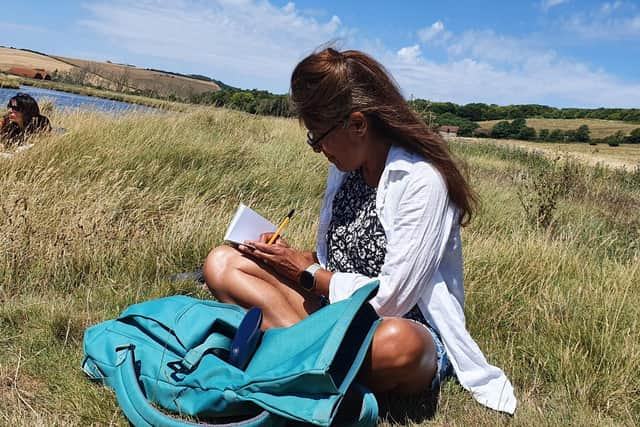A new writing programme has been launched for Black, Asian and ethnically diverse writers in south east England
and live on Freeview channel 276
These events will be led by National Trust, South Downs National Park Authority, Winchester Poetry Festival, Hampshire Cultural Trust and Winchester City of Sanctuary and supported by Arts Council England’s National Lottery Project Grant.
Advertisement
Hide AdAdvertisement
Hide Ad

Anooshka Rawden, cultural heritage lead for the South Downs National Park, said: ‘The South Downs is a living landscape, a space that nurtures the food we eat and is home to both people and nature. It is also a space that helps support people with their mental and physical health, providing nourishment for the soul. Now, more than ever, is the time we need all voices represented in the future of the countryside to protect and strengthen it.’
There will be a number of events that will be held including a nature and arts themed programme, the prospect to have work published in the third edition of Covert Literary magazine, a professional development programme and a new outreach programme for Hampshire refugee communities.
Advertisement
Hide AdAdvertisement
Hide AdThis money should be used to research new research or project work with the main focus on the landscape of the South Downs.
Anooshka added: ‘This project has brought together underrepresented voices to explore what countryside means through past stories rarely told, to the potential futures we face if we come together.
‘When we need more people to add their voices to the call to protect nature, we’re excited to see how the combined talent of creative writers from across Hampshire, Sussex and the wider south east can help us explore equitable futures in which nature thrives.’
